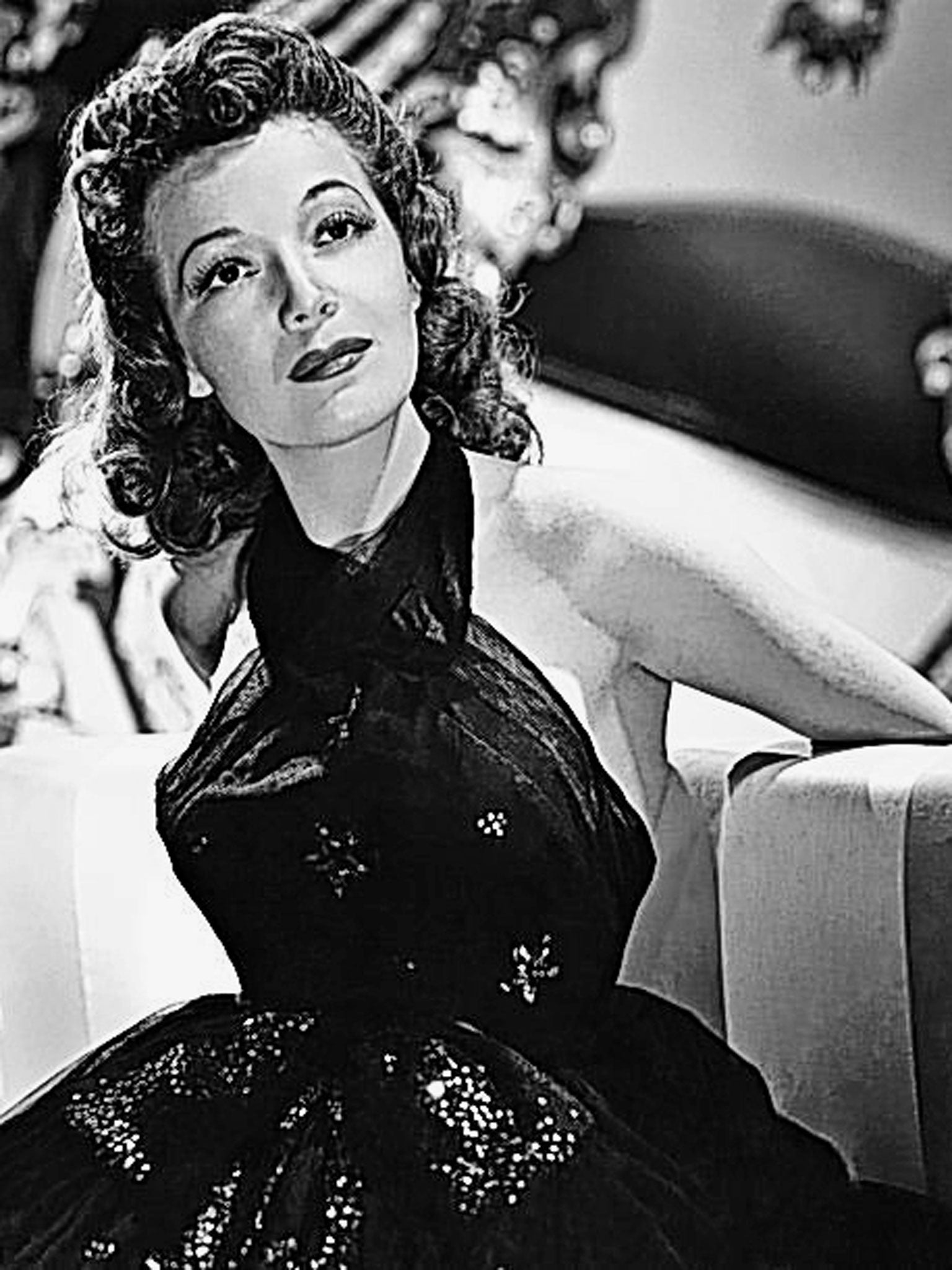Marta Eggerth: Star of light opera regarded as the definitive 'Merry Widow' who inspired film and stage directors alike

Marta Eggerth, the Hungarian soprano and film star who has died at the age of 101, was the last link with the Silver Age of Viennese Operetta. A truly remarkable artist with a wide vocal range, she had songs written for her by Franz Lehar, Emmerich Kalman, Oscar Straus and Robert Stolz, among others. She appeared in more than 40 films, many with her husband, the celebrated Polish tenor Jan Kiepura, while her recording career covered an exceptional span of 70 years.
Born in Budapest, Eggerth, whose mother was a singer, began singing as a child. By the age of 11 she was known as a wunderkind having made her professional debut in an operetta by Oscar Straus called Mannequins, and undertaken a concert tour of Denmark, Holland and Sweden. She was then signed up by Max Reinhardt to play Adele in his celebrated 1929 Hamburg production of Die Fledermaus. Emmerich Kalman saw her and asked her to understudy Adele Kern in his latest operetta, The Violet of Montmartre. When a sore throat kept Kern out of the opening performance, Eggerth took over, was a sensation, and sang the rest of the run.
She was asked by Richard Strauss to study the role of Zerbinetta in Ariadne auf Naxos which she undertook. But before she could sing the part on stage, she had signed to make her first film. Written by Billy Wilder and called, in English, Where is This Lady? the film was also Franz Lehar's first. He was so taken with Eggerth that he offered to make any changes to the score she felt necessary.
It was on the set of the film Mein Herz Ruft nach Dir, in 1934, that Eggerth first met Jan Kiepura. Musical films at that time were often shot in two or three languages. For Mein Hertz, Eggerth sang in the Italian and German versions, Danielle Darrieux in the French. It wasn't love at first sight with Kiepura, since he was much more interested in Darrieux than Eggerth, but eventually he did take notice and asked to escort her home. Feeling it was too soon in their relationship to invite him in, they walked up and down in front of the building where she lived. When they eventually came to say good night, Kiepura hurried to a florist and bought Eggerth a huge bunch of flowers. But he hadn't any money on him and Eggerth had to pay.
They were married in 1936 and became known throughout Europe as The Love Pair.
The following year, Kiepura was engaged by the New York Metropolitan Opera. While he was there, Eggerth headed to Hollywood to appear in two films with Judy Garland. But she hated playing second fiddle to Garland and got out of her contract with MGM as soon as she could. Returning to New York, which had become their home since neither of them, each with a Jewish mother, could contemplate a return to war-torn Europe, they opened on Broadway in Lehar's The Merry Widow with Robert Stolz conducting and George Balanchine as choreographer. The production was a fabulous success and became their meal-ticket. It toured the United States and was seen throughout Europe. Eggerth, possibly the greatest Widow of all, performed the role some 2,000 times in five languages.
When Kiepura died unexpectedly in New York in 1966, Eggerth immediately retired from the stage. It was her mother who persuaded her to return. She appeared with Diana Rigg in the musical Colette and later in Stephen Sondheim's Follies in Pittsburg, as well as making several cameo appearances on television. She was one of those artists who never lost her love of the greasepaint.
At the age of 87, Eggerth appeared in a televised concert to mark the first production at the Vienna State Opera of The Merry Widow. News of her participation produced a rush for tickets and her performance prompted a standing ovation. In her nineties she still sang the occasional concert, including one at the Wigmore Hall in London. She appeared to great acclaim in cabaret in New York and gave masterclasses on Viennese operetta at the Manhattan School of Music.
In 2005, a double-CD of her recordings was issued covering the 70 years from 1932 to 2002. For her 100th birthday in 2012, The Vienna State Opera staged a gala. Few other singers, if any, can have enjoyed such a long and distinguished recording career. Even when she reached the age of 100, Marta Eggerth epitomised the wit, the style and the glamour of Viennese operetta. She died at her home in Rye, New York and is survived by her two sons, Jan Sharbek and the concert pianist Marjan Kiepura.
Marta Eggerth, opera singer: born Budapest, Hungary 17 April 1912; married 1936 Jan Kiepura (died 1966, two sons); died Rye, New York 26 December 2013.
Join our commenting forum
Join thought-provoking conversations, follow other Independent readers and see their replies
Comments
Bookmark popover
Removed from bookmarks